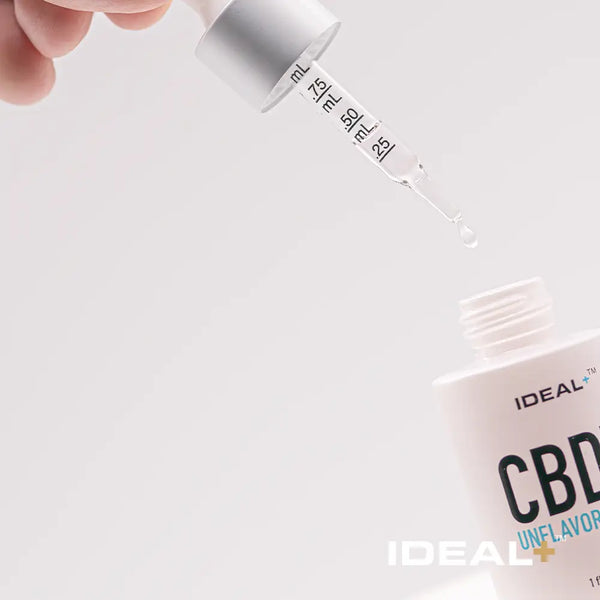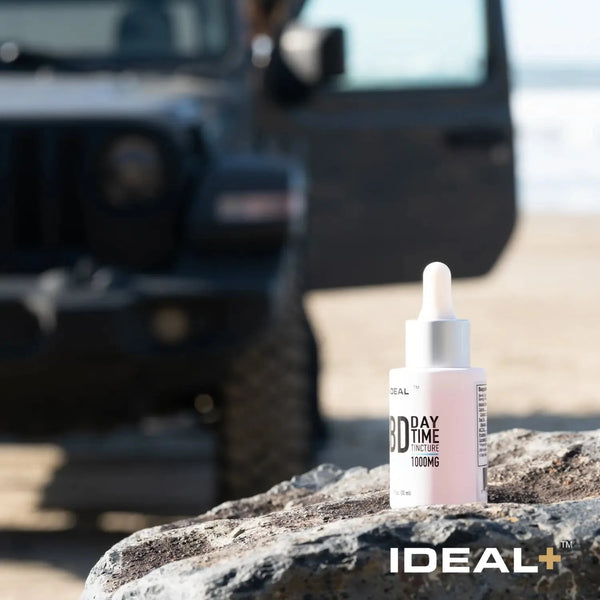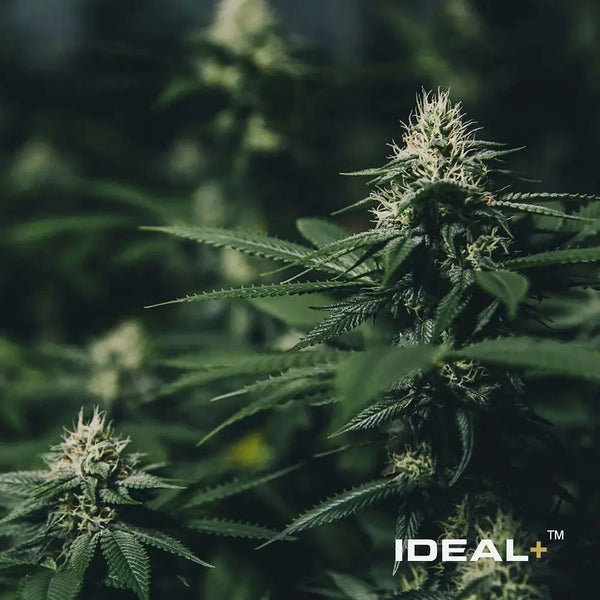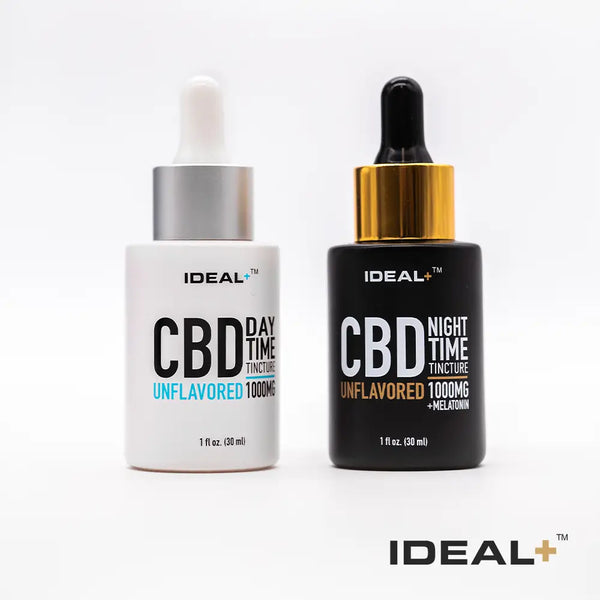No Products in the Cart
GET 25% OFF YOUR FIRST ORDER | GREENHOUSE THCA FLOWER 7g - $26.24 $34.99
The question of whether CBD causes tolerance has become increasingly important as millions of people worldwide incorporate cannabidiol into their daily wellness routines. Unlike its psychoactive counterpart THC, CBD presents a unique profile that challenges traditional assumptions about cannabis tolerance. This comprehensive guide explores the latest research on CBD tolerance, examines how THCa CBD combination products affect tolerance development, and provides evidence-based insights into raw cannabis CBD content and its implications for long-term use.
Understanding CBD tolerance is crucial for anyone seeking to optimize their cannabinoid experience, whether through isolated CBD products or whole plant CBD tolerance approaches that leverage the THCa CBD entourage effect. As we delve into the science behind CBD's interaction with our endocannabinoid system, we'll uncover why CBD behaves differently from other cannabinoids and what this means for your dosing strategy.

Cannabidiol (CBD) represents one of over 100 cannabinoids found in cannabis plants, distinguished by its non-psychoactive properties and complex pharmacological profile. Unlike THC, which directly binds to CB1 and CB2 receptors in the endocannabinoid system, CBD operates through multiple pathways, creating a fundamentally different tolerance profile.
The endocannabinoid system consists of receptors, enzymes, and endogenous cannabinoids that regulate various physiological processes. When examining CBD tolerance, researchers have discovered that CBD's indirect interaction with cannabinoid receptors, combined with its influence on serotonin, vanilloid, and other receptor systems, creates a unique pharmacological footprint that doesn't follow traditional tolerance patterns.
Fresh cannabis CBD content varies significantly based on cultivation methods, strain genetics, and processing techniques. Raw cannabis contains primarily CBDA (cannabidiolic acid), which converts to CBD through decarboxylation. This natural process affects how raw cannabis CBD content interacts with the body and influences tolerance development patterns.
The complexity of THCa CBD interaction in raw cannabis products adds another layer to tolerance considerations. THCa (tetrahydrocannabinolic acid) is the non-psychoactive precursor to THC, and when combined with CBD in raw cannabis preparations, it may influence how tolerance develops over time. This THCa CBD combination creates what researchers call the entourage effect, where multiple cannabinoids work synergistically to produce enhanced therapeutic effects.
Current scientific evidence suggests that CBD tolerance development differs markedly from other cannabinoids. A comprehensive review of available studies indicates that CBD tolerance may not develop in the traditional sense, and some research even suggests the possibility of reverse tolerance – where users may require less CBD over time to achieve the same effects.
Dr. Ethan Russo's pioneering research on the endocannabinoid system has revealed that CBD acts as a negative allosteric modulator of CB1 receptors, meaning it changes the receptor's shape to reduce THC binding affinity. This mechanism helps explain why THCa CBD combination products may actually prevent tolerance development rather than promote it.
A 2017 study published in Frontiers in Pharmacology examined long-term CBD use in epilepsy patients and found no evidence of tolerance development over extended periods. Participants maintained therapeutic benefits without requiring dose escalation, suggesting that natural cannabis CBD tolerance patterns differ significantly from synthetic pharmaceuticals or THC-based products.
Raw cannabis CBD content studies have shown that whole-plant preparations containing multiple cannabinoids, including CBDa, CBD, THCa, and minor cannabinoids, may be less likely to produce tolerance than isolated CBD products. This finding supports the theory that whole plant CBD tolerance patterns benefit from the complex interactions between various cannabis compounds.
The pharmacokinetics of CBD also contribute to its unique tolerance profile. Unlike THC, which accumulates in fatty tissues and maintains psychoactive effects, CBD is rapidly metabolized and eliminated from the body. This quick clearance may prevent the receptor downregulation typically associated with tolerance development.
Research into THCa CBD entourage effect mechanisms has revealed that the presence of THCa may actually enhance CBD's therapeutic properties while preventing tolerance. THCa appears to modulate CBD's metabolism and receptor interactions, potentially explaining why some users report improved effects with raw cannabis preparations compared to isolated CBD products.

One of the most intriguing aspects of CBD research is the emerging evidence for reverse tolerance – a phenomenon where users may actually need less CBD over time to achieve the same therapeutic effects. This counterintuitive finding challenges traditional pharmacological models and has significant implications for CBD tolerance understanding.
The reverse tolerance mechanism appears related to CBD's ability to enhance endocannabinoid system function rather than simply overwhelming it. Unlike substances that cause tolerance through receptor desensitization, CBD may actually optimize endocannabinoid signaling, leading to improved system efficiency over time.
THCa CBD combination products may be particularly prone to reverse tolerance effects. Research suggests that THCa's presence can enhance CBD bioavailability and extend its therapeutic window. This THCa CBD interaction may explain why some users of raw cannabis products report needing smaller doses over time while maintaining or improving therapeutic benefits.
Several clinical observations support the reverse tolerance theory. Patients using CBD for anxiety, epilepsy, and chronic pain have reported maintaining therapeutic effects with reduced dosages after extended use periods. This pattern contrasts sharply with traditional pharmaceuticals, where dose escalation is typically necessary to maintain efficacy.
The raw cannabis CBD content profile appears crucial for reverse tolerance development. Whole-plant preparations containing natural ratios of CBD, CBDa, THCa, and other cannabinoids may be more likely to produce this effect than isolated CBD products. This finding supports the importance of natural cannabis CBD tolerance approaches that preserve the plant's complete cannabinoid spectrum.
Developing an effective CBD dosing strategy requires understanding individual response patterns, product types, and tolerance considerations. Unlike THC, where tolerance typically necessitates dose increases, CBD tolerance management may involve maintaining or even reducing doses over time.
The "start low and go slow" approach remains the gold standard for CBD dosing, particularly when using THCa CBD combination products. Beginning with 5-10mg daily and gradually increasing by 5mg increments every 3-5 days allows users to identify their optimal therapeutic dose while monitoring for any tolerance development.
THCa CBD dosing requires special consideration due to the unique properties of raw cannabis preparations. THCa's presence may enhance CBD's effects, potentially allowing for lower overall cannabinoid doses. Users transitioning from isolated CBD to raw cannabis CBD content products should reduce their initial dose by 25-50% to account for enhanced bioavailability and entourage effects.
Individual factors significantly influence optimal dosing strategies. Body weight, metabolism, endocannabinoid system sensitivity, and specific health conditions all affect CBD requirements. Regular monitoring and dose adjustment ensure optimal therapeutic outcomes while minimizing the risk of CBD tolerance development.
Product consistency plays a crucial role in tolerance management. High-quality CBD products with consistent potency and cannabinoid profiles allow users to establish reliable dosing patterns. Inconsistent products may lead to inadvertent dose escalation as users compensate for variable potency, potentially contributing to tolerance development.
Whole plant CBD tolerance management benefits from understanding terpene profiles and minor cannabinoid content. These compounds contribute to the entourage effect and may influence tolerance patterns. Products that maintain consistent full-spectrum profiles are more likely to provide stable therapeutic effects without requiring dose increases.

The distinction between CBD tolerance and THC tolerance represents one of the most important concepts in cannabinoid pharmacology. While THC tolerance is well-documented and follows predictable patterns, CBD tolerance research reveals fundamentally different mechanisms and outcomes.
THC tolerance develops through CB1 receptor downregulation and desensitization. Regular THC use leads to reduced receptor density and responsiveness, requiring higher doses to achieve the same psychoactive effects. This process is reversible through tolerance breaks but follows a predictable escalation pattern.
CBD tolerance, by contrast, may not develop at all or could even reverse over time. CBD's indirect interaction with cannabinoid receptors, combined with its influence on endocannabinoid system function, creates a different pharmacological profile that doesn't follow traditional tolerance models.
THCa CBD interaction in raw cannabis products adds complexity to tolerance comparisons. Raw cannabis containing both compounds may prevent THC tolerance development while maintaining CBD's beneficial effects. This THCa CBD combination creates a unique profile that challenges simple THC vs CBD tolerance distinctions.
The temporal aspects of tolerance development also differ significantly. THC tolerance can develop within days or weeks of regular use, while CBD tolerance research suggests minimal tolerance development even after months or years of consistent use. This difference has practical implications for long-term therapeutic use strategies.
Cross-tolerance between THC and CBD is minimal due to their different receptor interactions. Users who develop THC tolerance typically don't experience reduced CBD sensitivity, and vice versa. This independence allows for combination therapies that leverage both cannabinoids' benefits without compromising efficacy.
Raw cannabis CBD content presents unique tolerance considerations that differ from processed CBD products. Raw cannabis contains cannabinoids in their acidic forms, primarily CBDa and THCa, which convert to their active forms through heat or time. This natural state may influence tolerance development patterns in several important ways.
CBDa, the acidic precursor to CBD, has distinct pharmacological properties that may contribute to natural cannabis CBD tolerance patterns. Research suggests CBDa has higher bioavailability than CBD and may provide enhanced anti-inflammatory and anti-nausea effects. Users consuming raw cannabis preparations may achieve therapeutic benefits with lower overall cannabinoid doses.
The fresh cannabis CBD content profile changes over time as acidic cannabinoids naturally decarboxylate. This gradual conversion process creates a dynamic cannabinoid profile that may help prevent tolerance development by providing varying ratios of active compounds over time.
THCa CBD entourage effect mechanisms in raw cannabis may actively prevent tolerance development. The complex interactions between multiple cannabinoids, terpenes, and other plant compounds create a synergistic effect that may be more resistant to tolerance than isolated compounds. This phenomenon supports the use of whole plant CBD tolerance approaches for long-term therapeutic use.
Processing methods significantly impact raw cannabis CBD content and tolerance patterns. Gentle extraction techniques that preserve the full spectrum of cannabinoids and terpenes are more likely to maintain the natural balance that prevents tolerance development. Harsh processing methods that isolate individual compounds may lose these protective effects.
Storage and handling of raw cannabis products affect their fresh cannabis CBD content profile over time. Proper storage maintains the natural cannabinoid balance, while improper storage may lead to premature decarboxylation and altered tolerance patterns. Understanding these factors helps users optimize their raw cannabis experience.

Long-term CBD use studies provide crucial insights into CBD tolerance development patterns and safety profiles. Clinical research spanning months to years of continuous CBD use has consistently failed to demonstrate significant tolerance development, supporting CBD's potential for sustained therapeutic use.
A landmark study following epilepsy patients using CBD for over two years found no evidence of tolerance development or loss of therapeutic efficacy. Participants maintained seizure control without requiring dose increases, demonstrating that CBD tolerance may not be a clinical concern for long-term therapeutic use.
THCa CBD combination products in long-term use studies show similar patterns of sustained efficacy without tolerance development. Patients using whole-plant preparations containing both compounds maintained therapeutic benefits while some actually reduced their doses over time, supporting the reverse tolerance phenomenon.
User reports from long-term CBD consumers align with clinical findings. Surveys of individuals using CBD for anxiety, chronic pain, and sleep disorders consistently report maintained efficacy without dose escalation requirements. Many users describe improved effects over time, particularly with raw cannabis CBD content products.
Safety profiles for long-term CBD use remain excellent across multiple studies. Unlike many pharmaceuticals that require dose increases due to tolerance, CBD users typically maintain stable, low doses with sustained benefits. This safety profile makes CBD an attractive option for chronic conditions requiring long-term management.
Whole plant CBD tolerance patterns in long-term use appear even more favorable than isolated CBD products. Users of full-spectrum products report greater satisfaction and less need for dose adjustments over time, supporting the importance of the entourage effect in preventing tolerance development.
Product quality and consistency play crucial roles in CBD tolerance development and management. Inconsistent products with variable potency can lead to inadvertent dose escalation as users compensate for unpredictable effects, potentially contributing to tolerance-like patterns.
Third-party testing ensures consistent raw cannabis CBD content and helps users establish reliable dosing patterns. Products that maintain consistent cannabinoid profiles over time allow users to develop optimal dosing strategies without the confusion caused by batch-to-batch variations.
THCa CBD combination products require particular attention to quality control due to the instability of acidic cannabinoids. Proper storage and handling preserve the natural balance of compounds that contribute to the THCa CBD entourage effect and help prevent tolerance development.
Manufacturing processes significantly impact whole plant CBD tolerance patterns. CO2 extraction methods that preserve the full spectrum of cannabinoids and terpenes are more likely to maintain the natural balance that prevents tolerance development compared to harsh extraction methods that may damage or remove beneficial compounds.
Storage conditions affect fresh cannabis CBD content stability and tolerance patterns. Products stored in cool, dark conditions maintain their cannabinoid profiles longer, while those exposed to heat, light, or air may degrade and lose effectiveness over time, potentially leading users to increase doses unnecessarily.
Certificate of Analysis (COA) documentation provides transparency about natural cannabis CBD tolerance factors by revealing the complete cannabinoid and terpene profiles. Users can make informed decisions about products that support their long-term tolerance management goals.
Based on current research and clinical evidence, several practical recommendations emerge for users concerned about CBD tolerance development. These guidelines help optimize therapeutic benefits while minimizing any potential for tolerance-related issues.
Start with low doses and increase gradually, allowing your endocannabinoid system to adapt naturally. This approach helps identify your minimum effective dose and reduces the likelihood of CBD tolerance development. Begin with 5-10mg daily and increase by 5mg increments every 3-5 days as needed.
Consider THCa CBD combination products for enhanced therapeutic benefits and reduced tolerance risk. The synergistic effects of multiple cannabinoids may provide superior results while actively preventing tolerance development through the entourage effect.
Choose high-quality, consistently tested products to maintain reliable dosing patterns. Inconsistent products can lead to inadvertent dose escalation and tolerance-like effects. Look for products with complete COAs showing raw cannabis CBD content profiles.
Monitor your response over time and be open to dose adjustments. Unlike traditional pharmaceuticals that typically require dose increases, CBD tolerance patterns may allow for dose maintenance or even reduction over time. Keep a usage log to track effects and optimal dosing patterns.
Consider tolerance breaks if you suspect reduced effectiveness, though research suggests this may not be necessary with CBD. Short breaks of 3-7 days can help reset your endocannabinoid system sensitivity and confirm your optimal therapeutic dose.
Whole plant CBD tolerance approaches may offer advantages over isolated CBD products. Full-spectrum products that preserve the natural balance of cannabinoids, terpenes, and other plant compounds are more likely to provide sustained benefits without tolerance development.
Individual response to CBD varies significantly based on genetic factors, endocannabinoid system sensitivity, metabolism, and health conditions. Understanding these variations helps explain why CBD tolerance patterns differ between users and why personalized approaches are essential for optimal outcomes.
Genetic polymorphisms in enzymes that metabolize cannabinoids can significantly impact CBD effects and tolerance patterns. Some individuals may be fast metabolizers who require higher doses, while others may be slow metabolizers who need smaller amounts for therapeutic effects. These genetic differences influence natural cannabis CBD tolerance requirements.
Endocannabinoid system tone varies between individuals and can change over time based on stress, diet, exercise, and other lifestyle factors. People with endocannabinoid deficiency may require different CBD tolerance management approaches than those with optimal system function.
THCa CBD interaction effects may vary based on individual sensitivity to different cannabinoids. Some users may be more responsive to the entourage effects of THCa CBD combination products, while others may prefer isolated CBD preparations. Personal experimentation helps identify optimal approaches.
Age-related factors influence raw cannabis CBD content requirements and tolerance patterns. Older adults may have different metabolism rates and endocannabinoid system function compared to younger users, requiring adjusted dosing strategies and tolerance monitoring approaches.
Health conditions significantly impact CBD requirements and tolerance development. Conditions affecting liver function, endocannabinoid system activity, or inflammation levels may alter how individuals respond to CBD over time and influence whole plant CBD tolerance patterns.
Effective CBD tolerance management requires understanding how to adjust dosages appropriately based on response patterns and changing needs. Unlike traditional pharmaceuticals that often require dose escalation, CBD may allow for more flexible dosing approaches.
The concept of "dosage titration" applies differently to CBD than other substances. While traditional titration involves gradually increasing doses until desired effects are achieved, CBD tolerance management may involve finding the minimum effective dose and maintaining it over time without increases.
THCa CBD dosing strategies should account for the enhanced bioavailability and entourage effects of raw cannabis preparations. Users transitioning between product types may need to adjust their baseline doses significantly to account for these differences.
Seasonal adjustments may be necessary for some users, as factors like stress levels, sleep patterns, and inflammation can change throughout the year. Natural cannabis CBD tolerance approaches should remain flexible to accommodate these natural variations in endocannabinoid system function.
Medical condition progression may require dose adjustments over time. Chronic conditions that improve with CBD treatment may allow for dose reductions, while progressive conditions might require maintained or slightly increased doses. Regular monitoring helps identify appropriate adjustment patterns.
Fresh cannabis CBD content variations between batches or seasons may require minor dose adjustments to maintain consistent effects. High-quality products with consistent profiles minimize these requirements, but some variation is natural and expected.
Emerging research directions in CBD tolerance investigation promise to refine our understanding of cannabinoid pharmacology and optimize therapeutic approaches. Current studies are exploring genetic factors, personalized dosing strategies, and novel delivery methods that may further reduce tolerance concerns.
Pharmacogenomic research is investigating how genetic variations affect CBD tolerance development and optimal dosing requirements. Future testing may allow for personalized CBD recommendations based on individual genetic profiles, optimizing therapeutic outcomes while minimizing tolerance risks.
THCa CBD entourage effect mechanisms continue to be explored through advanced research techniques. Understanding how different cannabinoid combinations influence tolerance patterns will help develop more effective therapeutic formulations and dosing strategies.
Long-term population studies following CBD users over decades will provide crucial data about whole plant CBD tolerance patterns and safety profiles. These studies will help establish evidence-based guidelines for lifetime CBD use and tolerance management.
Novel delivery methods including nanotechnology, targeted delivery systems, and extended-release formulations may further optimize raw cannabis CBD content utilization and reduce any potential for tolerance development through improved bioavailability and consistent dosing.
Clinical research into specific medical conditions continues to reveal how natural cannabis CBD tolerance patterns vary based on underlying health issues. This research will help develop condition-specific dosing guidelines and tolerance management strategies.
Does CBD build tolerance like THC? Research indicates that CBD tolerance does not develop like THC tolerance. CBD's unique interaction with the endocannabinoid system, including its indirect receptor binding and multiple pathways of action, appears to prevent traditional tolerance development. Some studies even suggest reverse tolerance, where users may need less CBD over time.
How long can I use CBD without developing tolerance? Clinical studies following patients for over two years show no evidence of CBD tolerance development. Unlike THC or many pharmaceuticals, CBD appears suitable for long-term use without requiring dose escalation. Whole plant CBD tolerance patterns may be even more favorable than isolated CBD products.
What's the difference between raw cannabis CBD and processed CBD for tolerance? Raw cannabis CBD content includes cannabinoids in their natural acidic forms (CBDa, THCa) which may have enhanced bioavailability and different tolerance profiles. The THCa CBD combination in raw cannabis creates an entourage effect that may actively prevent tolerance development compared to isolated CBD products.
Should I take tolerance breaks from CBD? Unlike THC, CBD typically doesn't require tolerance breaks. If you suspect reduced effectiveness, a short 3-7 day break can help reset your system, but research suggests this may not be necessary for CBD tolerance management. Maintaining consistent dosing often provides optimal results.
How do I know if I'm developing CBD tolerance? True CBD tolerance appears to be rare based on current research. If you notice reduced effects, consider factors like product quality, consistency, stress levels, or health changes before assuming tolerance development. Natural cannabis CBD tolerance patterns may actually improve over time.
Can combining THCa with CBD prevent tolerance? THCa CBD interaction research suggests that combining these cannabinoids may actually prevent tolerance development through the entourage effect. The THCa CBD entourage effect creates synergistic benefits that may maintain or enhance therapeutic effects over time without requiring dose increases.
What's the optimal CBD dose to prevent tolerance? CBD tolerance prevention focuses on finding your minimum effective dose rather than taking maximum amounts. Start with 5-10mg daily and increase gradually until desired effects are achieved. THCa CBD dosing may require lower amounts due to enhanced bioavailability.
Do full-spectrum CBD products cause less tolerance? Whole plant CBD tolerance research suggests that full-spectrum products containing multiple cannabinoids and terpenes may be less likely to cause tolerance than isolated CBD. The entourage effect from fresh cannabis CBD content appears to maintain therapeutic benefits over time.
The question of whether CBD causes tolerance has been comprehensively addressed through emerging research that challenges traditional pharmacological assumptions about cannabis compounds. Unlike THC and many pharmaceutical substances, CBD tolerance does not appear to develop in the classical sense, and mounting evidence suggests that CBD may actually improve in effectiveness over time through reverse tolerance mechanisms.
The unique pharmacological profile of CBD, including its indirect interaction with cannabinoid receptors and influence on multiple physiological pathways, creates a tolerance pattern that favors long-term therapeutic use. Clinical studies spanning years of continuous CBD use consistently demonstrate maintained efficacy without dose escalation requirements, supporting CBD's potential as a sustainable wellness solution.
THCa CBD combination products offer particular promise for tolerance management through the entourage effect. The synergistic interactions between CBD, THCa, and other cannabis compounds in raw cannabis CBD content preparations appear to actively prevent tolerance development while enhancing therapeutic benefits. This THCa CBD entourage effect supports the wisdom of whole-plant approaches to cannabis therapeutics.
Whole plant CBD tolerance patterns demonstrate the superiority of full-spectrum products over isolated compounds for long-term use. The natural balance of cannabinoids, terpenes, and other plant compounds in fresh cannabis CBD content creates a more stable and sustainable therapeutic profile that resists tolerance development.
Individual response variations emphasize the importance of personalized approaches to CBD tolerance management. Factors including genetics, endocannabinoid system function, health conditions, and lifestyle choices all influence optimal dosing strategies and tolerance patterns. Regular monitoring and adjustment ensure optimal therapeutic outcomes while minimizing any potential for tolerance-related issues.
Quality and consistency remain crucial factors in natural cannabis CBD tolerance management. High-quality products with reliable potency and cannabinoid profiles enable users to establish stable dosing patterns without the confusion caused by inconsistent products. Third-party testing and proper storage preserve the natural balance of compounds that support sustained therapeutic benefits.
For those seeking high-quality CBD products that support optimal tolerance management, Try Ideal Plus offers a comprehensive selection of premium CBD products designed to maintain therapeutic efficacy over time. Their commitment to quality and consistency supports users in developing sustainable CBD wellness routines without tolerance concerns.
The future of CBD tolerance research promises even greater insights into optimizing cannabinoid therapeutics for individual needs. As our understanding of the endocannabinoid system and cannabinoid interactions continues to evolve, CBD's unique tolerance profile positions it as an ideal choice for long-term wellness support without the escalation patterns associated with traditional pharmaceuticals.
Understanding that CBD tolerance differs fundamentally from other substances empowers users to approach CBD with confidence for sustained therapeutic benefits. Whether choosing isolated CBD products or embracing the THCa CBD interaction benefits of full-spectrum preparations, current research supports CBD's potential for long-term use without significant tolerance development concerns.